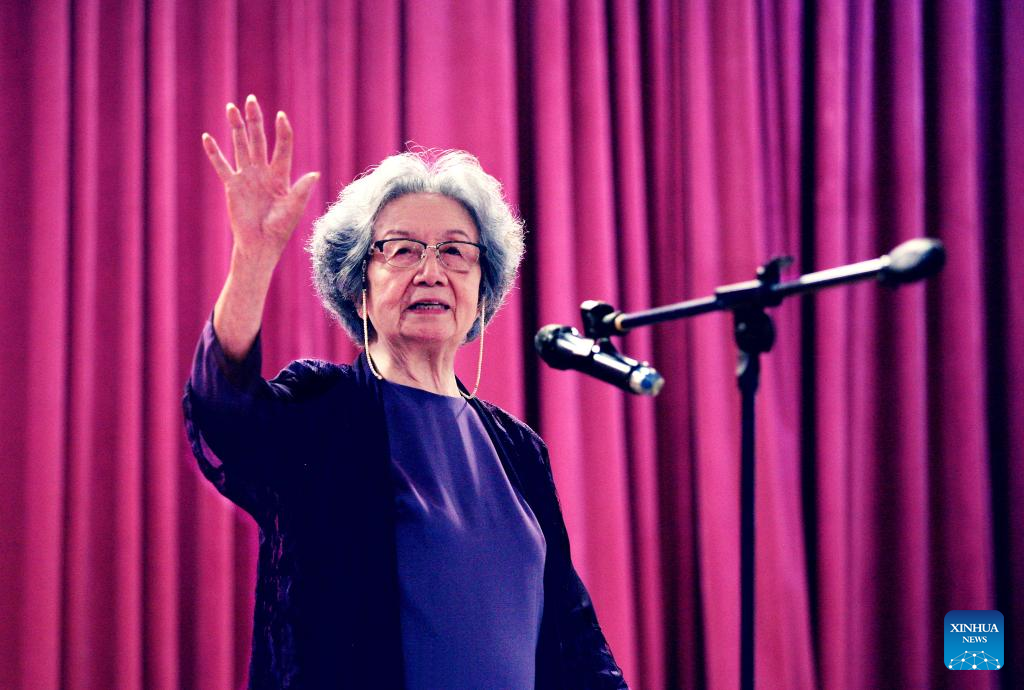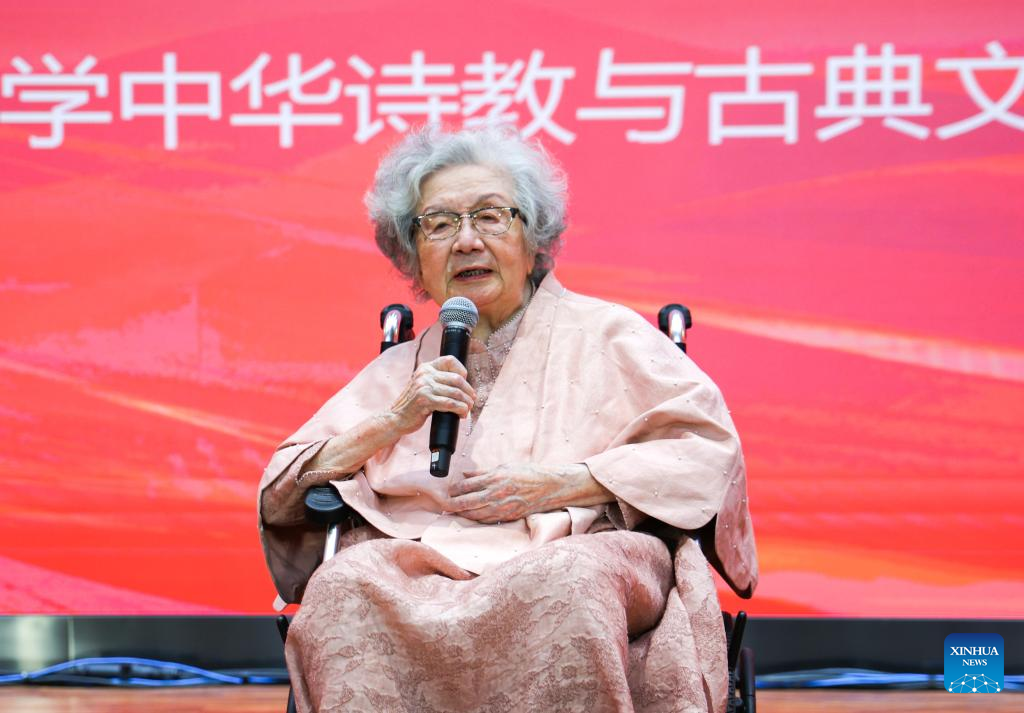
Respected scholar of Chinese classical literature Florence Chia-ying Yeh, also known as Ye Jiaying, passed away on Sunday in Tianjin at the age of 100, according to the city's Nankai University, where she worked for a large part of her life.
Yeh was engaged in creating, researching and teaching Chinese poetry both in China and abroad, which she called her sole mission in life. She insisted on teaching even in her 90s, and videos of her lectures went viral on Chinese social media platforms.
The poetry doyenne once lectured in overseas institutions including Harvard University in the United States and the University of British Columbia in Canada. Renowned writers Chen Yingzhen, Kenneth Hsien-yung Pai and Hsi Mu-jung were among her students. In 1991, Yeh was elected as a Fellow of the Royal Society of Canada.
ALSO READ: Chronicler of immigrant journeys
"In my view, the value of studying classical Chinese poetry lies in its ability to arouse in people an immortal spirit that is adept at feeling, rich in imagination and even richer in foresight," she once said.
In 2018 and 2019, Yeh donated all her savings and proceeds from her property sales, which totaled 35.68 million yuan ($4.92 million), to Nankai University. She was given the "Touching China" award in 2020.

Kang Zhen, vice-president of Beijing Normal University and an expert on classical Chinese literature, said that Yeh possessed a profound foundation in classical Chinese literature and Western poetics theories.
READ MORE: Literature needs to reflect true evolving ethnic cultures
"She seamlessly integrated her rich and deep life experiences with the appreciation and interpretation of Chinese classical poetry, forming a distinctive poetics system characterized by her own personality," he said.
Kang added that throughout her life, Yeh was dedicated to the inheritance and promotion of classical poetry and traditional Chinese culture, making an enormous contribution to bringing them to a wider audience and the world.
Yeh was born to a family of intellectuals in Beijing in 1924 and was exposed to classical poetry and the English language from a young age.
In college, she studied poetry from the Tang (618-907) and Song (960-1279) dynasties with renowned master of Chinese literature Gu Sui, who greatly influenced her understanding of poetry and life, as well as her teaching style.
READ MORE: Peeking deeper into famed Peking Opera performer's life
In the 1950s and 1960s, Yeh taught at several universities in China's Taiwan, and then moved to Vancouver, Canada, in 1969. In 1979, she started giving free lectures on the Chinese mainland during the holidays, traveling at her own expense. She lived and worked at Nankai University during her final decades.
Yeh's life was fraught with personal tragedies. She lost her mother when she was only 17 years old, and her eldest daughter died when Yeh reached middle age. "The study of poetry is not a goal that I pursue, but a strength that supports me through difficulties," she wrote at age 87.

At 92, she curated 218 ancient poems for children and recorded videos of interpretation and recitation the following year.
In 2020, Yeh, then 96, gave a lecture from a wheelchair to freshmen at Nankai University, her voice confident and her sense of humor intact, as she joked about how her hair was becoming darker with age, the China Youth Daily reported.
ALSO READ: Introducing France to China, word by word
Those who have listened to Yeh's lectures have said she always lowered the threshold for appreciating poetry and guided the students, step by step.
Dai Jinhua, a professor of Chinese literature at Peking University, recalled that in her college years, it was Yeh who made her see the wisdom of a teacher and inspired her to become one.
Yeh interpreted poetry with her own life experiences, such as her witnessing the War of Resistance Against Japanese Aggression (1931-45). She once expressed her appreciation for Southern Song Dynasty (1127-1279) poet and military official Xin Qiji (1140-1207), because he never lost his ambition to reclaim his homeland despite turbulent times.
Expressing her concern for society, she once said: "I want to engage with the world. I want to do something for humankind. … I can do it without seeking fame, but my inner clarity shall not be disturbed."


